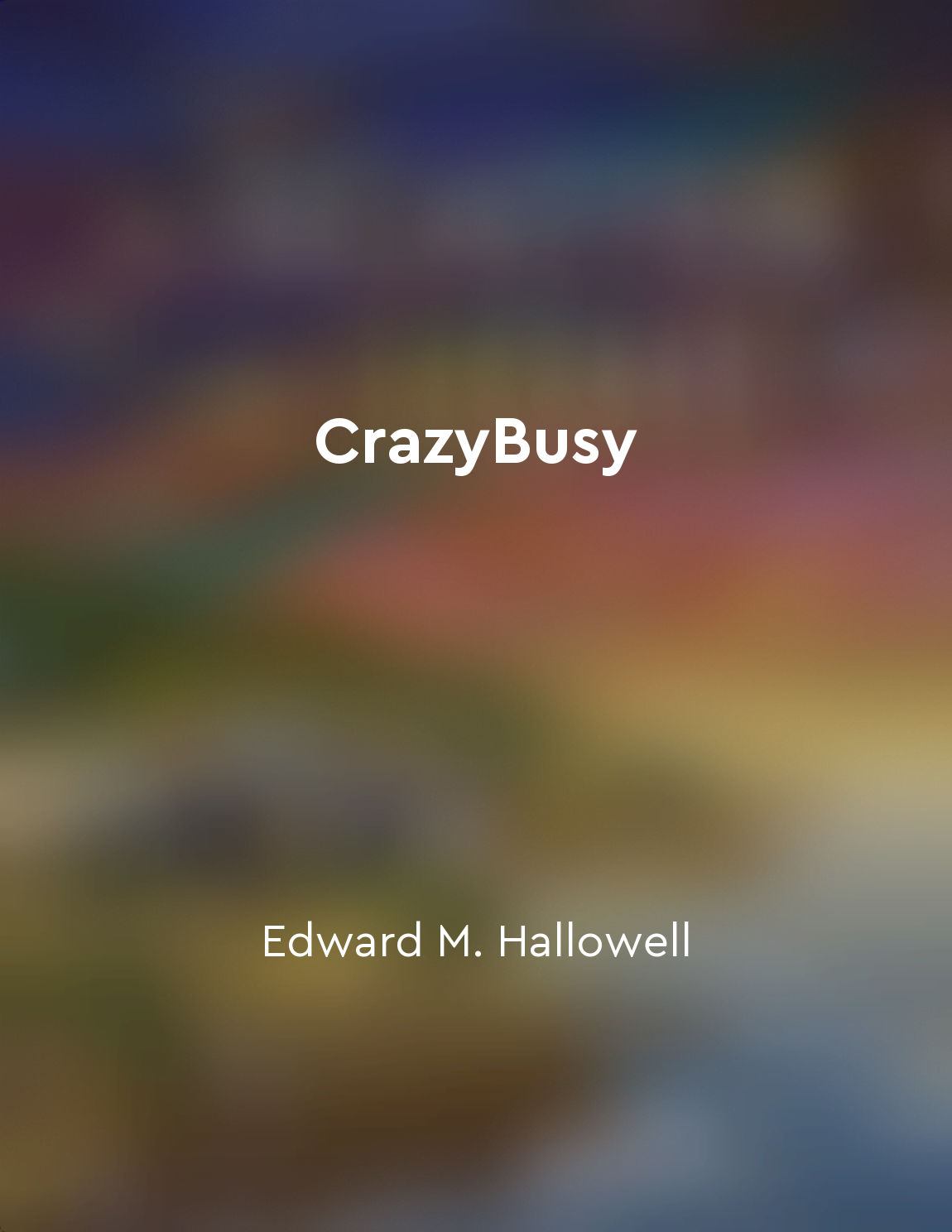The mind becomes lazy with technological assistance from "summary" of The Glass Cage by Nicholas Carr
As we come to rely more and more on technology to perform tasks that used to require our full attention and effort, our minds are starting to grow complacent. The ease with which we can delegate responsibilities to machines is leading us down a slippery slope towards mental laziness. With the push of a button or the swipe of a screen, we can offload the burden of decision-making and problem-solving onto our devices. As a result, our cognitive skills are beginning to atrophy, much like muscles that are left unused. Instead of engaging in deep, focused thinking to solve complex problems, we are becoming accustomed to taking shortcuts and relying on algorithms to do the heavy lifting for us. This shift in behavior is not only making us more passive and dependent on technology, but it is also eroding our ability to think critically and creatively. By relinquishing control to machines, we are sacrificing the very skills that make us uniquely human. In a world where technology is constantly improving and becoming more integrated into our daily lives, it is easy to see how this trend towards mental laziness could continue to escalate. As machines become more sophisticated and capable of handling increasingly complex tasks, the temptation to offload more of our cognitive load onto them will only grow stronger. However, this trade-off comes at a cost - the gradual erosion of our cognitive abilities and the diminishing of our capacity for independent, autonomous thought. While it may be convenient to rely on technology to streamline our lives and boost our productivity, we must be mindful of the long-term consequences of allowing our minds to grow lazy in the process. We must strike a balance between leveraging the benefits of technology and preserving our cognitive skills and capacities. Only by actively engaging our minds and exercising our cognitive faculties can we hope to stave off the encroaching tide of mental laziness that threatens to engulf us.Similar Posts

The unification of humankind under empires has been a doubleedged sword
The formation of empires brought about the unification of diverse human groups under a single political structure. This process...
Automation can lead to a loss of autonomy
Automation has become a ubiquitous presence in our lives, promising to make things easier and more efficient. We eagerly embrac...

Machines can perform complex tasks
In the realm of artificial intelligence and robotics, there exists a prevailing notion that machines are increasingly capable o...
The gig economy is changing the nature of work
The rise of the gig economy represents a fundamental shift in how work is organized and carried out. In this new paradigm, indi...
The rise of AI requires new approaches to governance and regulation
As artificial intelligence (AI) continues to advance and permeate various sectors of society, the need for new approaches to go...

Multitasking is not the answer
Multitasking, that vaunted ability to do more than one thing at a time, is a myth. It is a modern-day mirage that tricks us int...
Stay organized with todo lists and calendars
One of the simplest and most effective ways to stay organized in your daily life is by using todo lists and calendars. These to...
Organizations must adapt quickly to stay competitive
The pace of technological change is accelerating at an unprecedented rate, forcing organizations to constantly evolve in order ...

Embracing boredom and allowing ourselves to be still can spark creativity and deeper thinking
In our fast-paced, hyperconnected world, it seems like we are constantly bombarded with stimuli that demand our attention. We a...
Finding balance with technology requires setting boundaries and being intentional with your usage
To achieve a healthy relationship with technology, one must establish clear boundaries and purposeful habits. The key lies in b...
